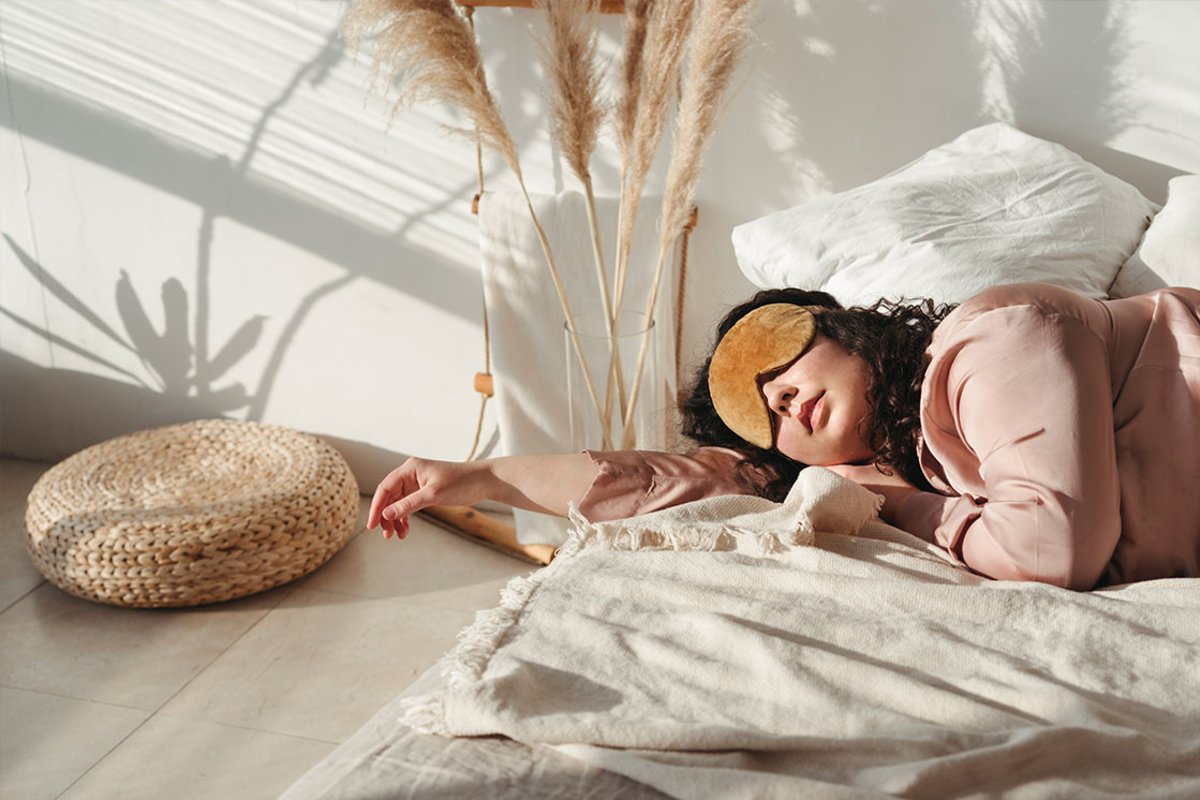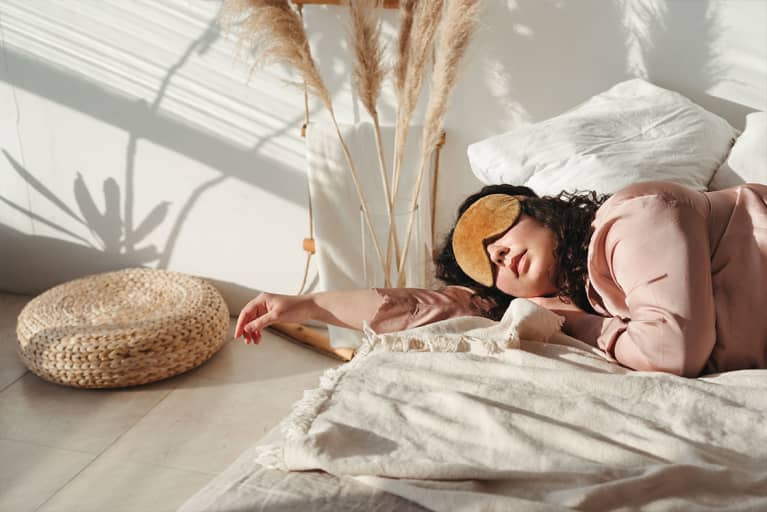These Organic Comforters Strike The Perfect Balance Between Soft & Sustainable
Ready to snooze in your own personal safe, sustainable cocoon?


August 30, 2022 — 10:04 AM
A lot of health-conscious folks are already buying organic food—but what about organic bedding? Comforters that are certified organic don't contain chemicals that deplete our natural ecosystems. And beyond being less environmentally destructive, they're also less likely to contain compounds that off-gas and disrupt precious sleep or contribute to skin irritation overnight.
Ready to snooze in your own personal safe, sustainable cocoon? Read on for the six best organic comforters available right now.
What it means for bedding to be organic.
"Organic" is often used as a blanket (no pun intended) statement to describe sustainable products, but it actually has a pretty strict legal definition.
In the U.S., organic crops are grown in soil that has not been treated with synthetic fertilizers, pesticides, or other prohibited substances within the last three years. And organically grown animals were raised in "living conditions accommodating their natural behaviors (like the ability to graze on pasture), fed 100% organic feed and forage, and not administered antibiotics or hormones," according to the USDA.
So, an organic comforter will be made from materials that can be grown organically—usually cotton or wool. While materials like recycled plastic bottles (originally made from petroleum) and bamboo or eucalyptus (created using a process that requires added chemicals) are often touted as having lower environmental impacts, they are not organic and should not be labeled as such.
The Global Organic Textile Standard (GOTS) is the leading certifier of organic textiles around the world, and the top label to look for on an organic comforter. GOTS certifies that a product's entire supply chain—from farm to finishes—is organic.
The standard was created twenty years ago in response to an increasingly global textile market. "Textiles travel the world a lot, and they have a really high carbon footprint," Lori Wyman, a representative of GOTS North America, tells mindbodygreen. "Cotton could be grown in the U.S., shipped to Turkey to be spun into yarn, go somewhere else to be woven, and then end up back in the U.S. to be sold."
By checking in on spinning facilities, knitters, dye houses, etc. every 1 to 3 years, GOTS auditors ensure that no potentially harmful chemicals were added anywhere in the process. There are also animal rights and fair trade elements to the GOTS standard, which you can read in full here.
As consumer demands grow for organic and sustainable products, more companies seeking out GOTS certifications. Wyman notes that in the past six years alone, the number of certified companies has increased around fourfold.
Some other labels you might see on an organic comforter these days include OEKO-TEX 100 (certifies it has been tested for substances that could harm human health) and Fairtrade (certifies it was created by people who were paid a living wage and working in safe conditions).
How we picked.
Certifications
All the comforters on our list are made from GOTS-certified materials, so you know they're actually free of harsh pesticides, fertilizers, and chemicals that can harm human and environmental health. Some also have bonus certifications like OEKO-TEX and Fairtrade.
Customer service
From sweaty sleepers looking for a way to stay cool to sleepers who crave the weight of a hotter, heavier option, people have different comforter needs. We prioritized companies that have sleep trials and different comforter styles available to help customers find their perfect fit.
Comfort
Soft and breathable materials and cozy weaves make these comforters a dream to sleep under. We scoured hundreds of customer reviews to track down the most comfortable options out there.
Price
Since organic products need to be grown to more exacting standards, they're bound to be more expensive. However, we did our best to find ones that fit a range of price points. They're still pricey, but their durable, high-quality materials ensure that the investment pays off in the long run.
Once you have a super supportive mattress and a perfectly puffy pillow, the right comforter is like the cherry on top of a sleep-supporting setup. Look for one that is certified organic by a credible third-party group like GOTS to ensure that it's made with the environment and your health in mind. These six options are soft, breathable, and just the right weight for your sustainable snooze.
https://www.mindbodygreen.com/articles/organic-comforter

 BigThink
BigThink 
































